Assassin's Creed's most important music almost didn't happen: “It wasn’t planned"
Auditore-um
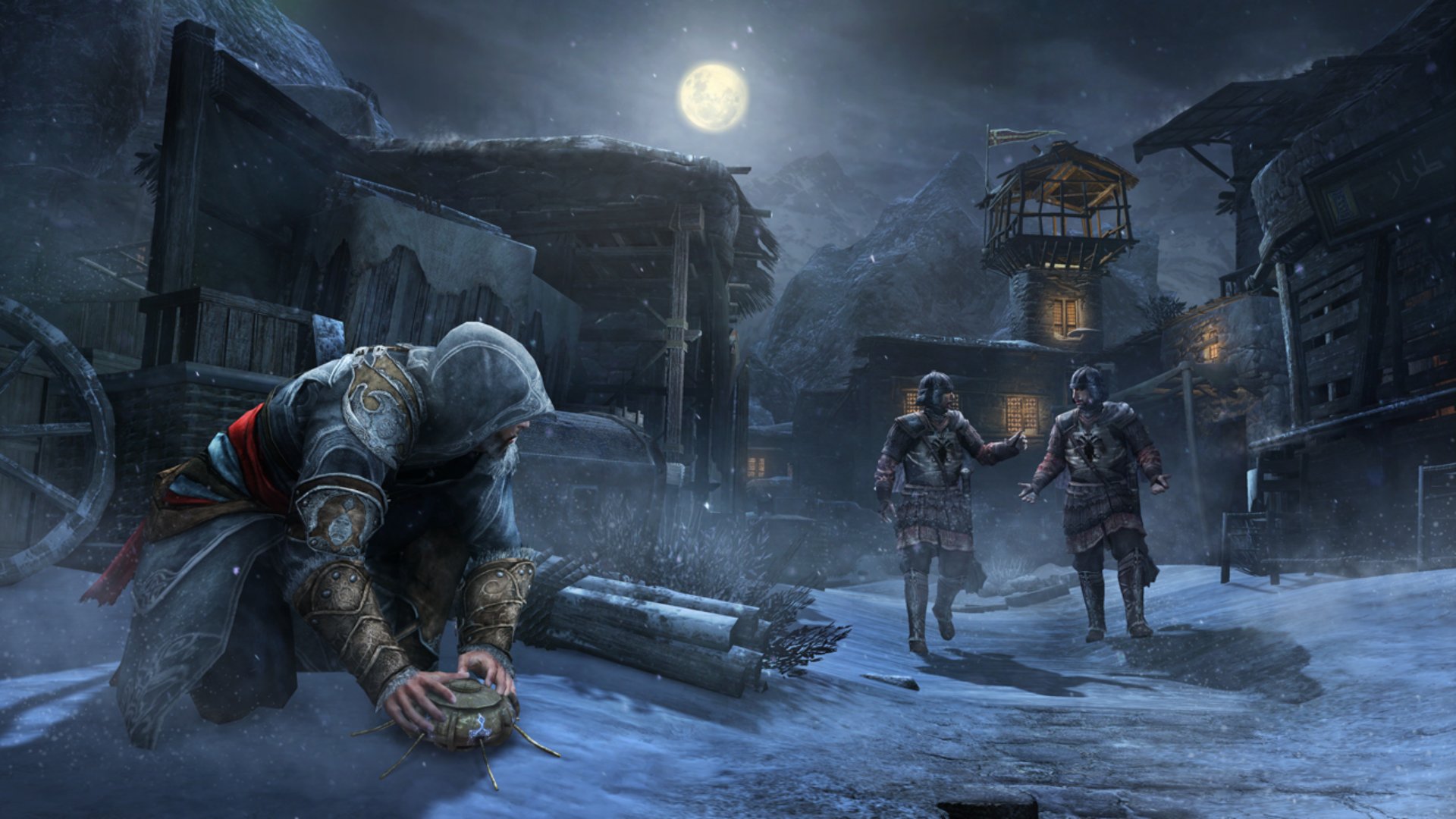
The promise of Assassin’s Creed is that it makes human history – potentially the entirety thereof – your playground. It can go anywhere, and anywhen. From the mud-slick hamlets of post-Roman Britain to the glorious domes of Renaissance Italy. From the Ptolemaic breadbasket of the Nile Delta to the sunkissed waters of the pirate-riddled Caribbean. The animus conceit is much like Doctor Who’s TARDIS, and introduces a similar creative burden: if you can go anywhere in time and space… where, exactly, do you go?
Much debate among the Assassin’s Creed fanbase centers around what constitutes a good setting vs a bad one. The best games, you see, have dense urban environments with lots of verticality. No, you idiot, the best games are the ones where you’re on a pirate ship. And so on.
And what of the protagonists? Whether the next setting is any cop is nowhere near as tense a subject as the avatar you’ll inhabit while exploring it. Assassin’s Creed 2’s Ezio towers above the rest as a fan-favorite lovable rogue, but few other Assassin's Creed protagonists have achieved anything close to his universal approval. Kassandra probably comes closest, with Bayek and Edward vying for a distant third place – while Evie Frye would also be in the running, had she not had to share a game with her nauseating brother.
While mechanically similar, every Assassin’s Creed game is markedly different in tone and aesthetic. Establishing a strong core identity for a series with scant few recurring characters or locations would seem like an impossible task, and yet it’s one of the most easily recognizable properties in popular culture. When booting up a new release, fans feel instantly back at home in its world. How? Because of its overarching modern-day story? Sure. The striking iconography of the Assassin’s Guild itself? Definitely – the pointy hoods really give it away. But, perhaps most important are its signature sounds.
Tune raider
In the sonic realm, Assassin’s Creed is remarkably consistent. The familiar sequence of noises when performing a leap of faith, for example – an eagle’s call, a whoosh in the ears, the sharp crinkle of a master assassin meeting the embrace of some fortuitously placed hay. It’s a masterfully tuned soundscape, made complete by the series’ brilliantly composed original music.

Every one of the games has a soundtrack that seems at once perfectly tuned to the appropriate historical place and time, while also carrying a signature oddness. Synths, filter sweeps, off-piste percussion, and inventive instrumentation combine into sublime overtures that are as worthy and innovative as classical music.
Origins was set so far back in history, we don’t have recordings or know exactly what the music would have sounded like
Sarah Schachner, composer
Sarah Schachner, who has composed for a number of AC games, including Assassin's Creed Unity, Assassin’s Creed Origins, and Assassin's Creed Valhalla, draws inspiration from practical sources as well as abstract cultural ideas. “Origins was set so far back in history, we don’t have recordings or know exactly what the music would have sounded like,” she says. “So I drew a lot of inspiration from the stunning visuals of this game. I blended electronics with instruments from the region like the Oud, lyres, strings, and percussion – processed in more modern ways for that sci-fi element. I focused on creating a layered, textured soundscape to evoke the wonder and mystery of this otherworldly culture that was so immersed in mythology.
Get daily insight, inspiration and deals in your inbox
Sign up for breaking news, reviews, opinion, top tech deals, and more.
“With Unity, I was drawing much more from the era's music because we know what that sounds like,” she adds. “The score has synths and modern techniques, but I drew primarily from classical music. As for Valhalla, that clashing and merging of Norse and Anglo-Saxon culture was really fascinating.”
Improbably, Schachner grew up “pillaging and plundering” in her backyard on a full-sized Viking ship replica from the Leif Erikson society. In other words, she’d been ready for the setting for a long time, and was thrilled to play ancient Scandinavian instruments like the Tagelharpa – a kind of lyre, played with a bow, that resembles a washboard.
On the vinyl
Assassin’s Creed’s history of marvelous music compelled Laced Records, part of Keywords Studios, to produce a sumptuous vinyl compilation for the series’ 15th anniversary. The release spans every mainline game and contains no fewer than five different versions of Assassin's Creed 2’s Ezio’s Family – that stirring signature theme which, in just the opening four notes, is enough to ground any wild historical fantasy firmly within the Assassin’s Creed setting in the mind of the player.
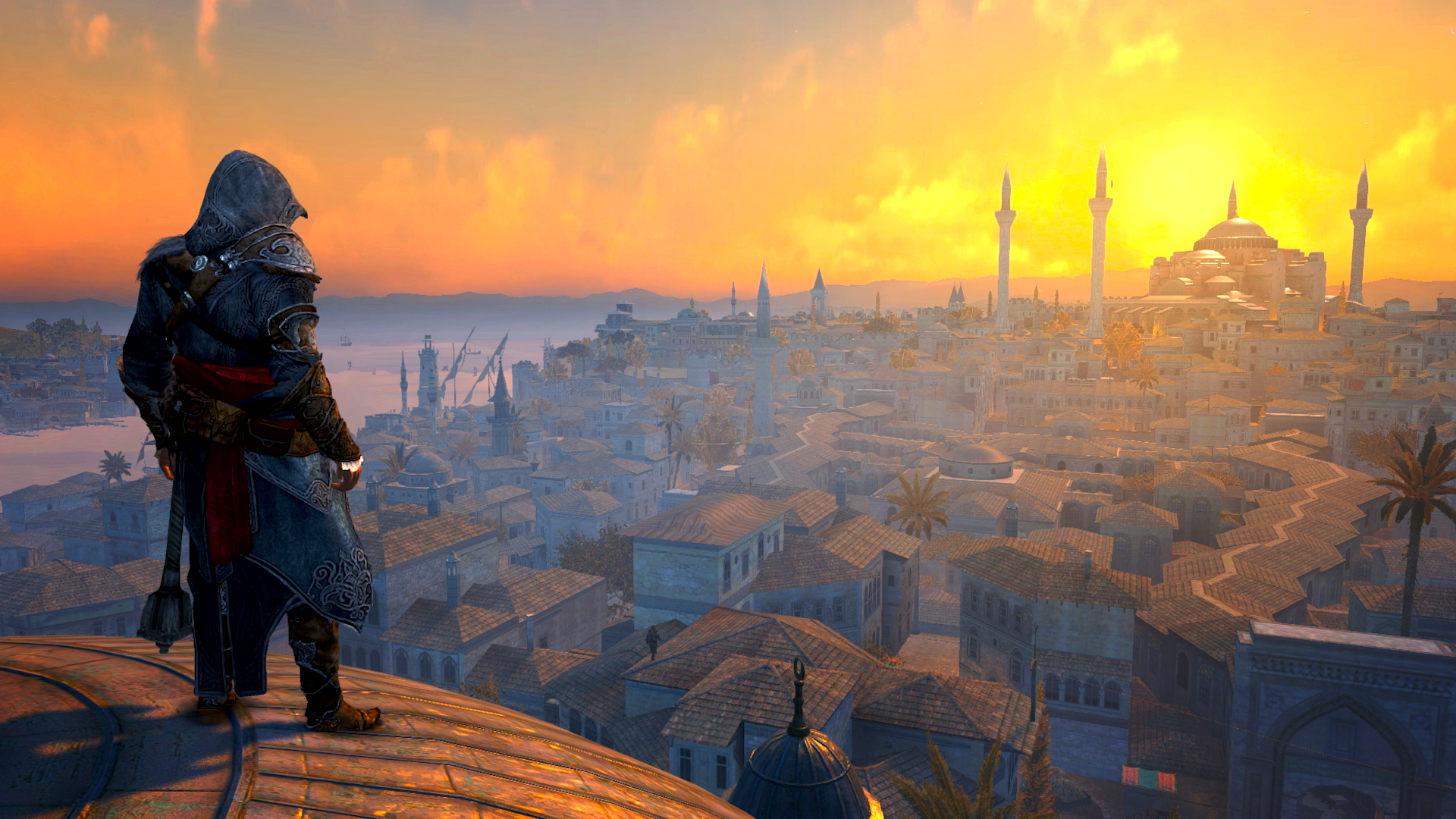
Ezio’s Family wasn’t always meant to be Assassin’s Creed’s ‘main theme’. In fact, according to original series composer Jesper Kyd, it wasn’t meant to be at all
The Origins version of Ezio’s Family is particularly important to the narrative, as it signifies the start of the titular creed – a moral code born from a tragedy that will go on to underpin the entire timeline. Schachner uses it to great effect in her score, reworking it to reflect Origins’ place within the canon: “Since this was a pivotal point, I felt it was important to weave the DNA of the Origins theme into Ezio's Family like interlocking parts of the broader story of the Creed.”
But Ezio’s Family wasn’t always meant to be Assassin’s Creed’s ‘main theme’. In fact, according to original series composer Jesper Kyd, it wasn’t meant to be at all. “It wasn’t planned,” he says. “I didn’t even have a place to put this theme in the game, since I wasn’t asked to write this cue. But when I read the story, I was compelled to write a theme to represent Ezio’s tragic loss, emotional journey and transformation. Ubisoft loved it so much they put it in the game's opening and in the end credits.”
And the rest, as they say, is history. After release, Kyd noticed that the Assassin’s Creed 2 soundtrack was selling particularly well, and that Ezio’s Family had quickly reached 15 million hits on YouTube.
“I give credit to Ubisoft for recognizing how the theme has resonated with the fans and connects the games,” he says. “I first noticed the return of Ezio’s Family in Assassin’s Creed Unity and Assassin’s Creed Rogue.” From there, it featured in subsequent major entries – Syndicate, Origins and Odyssey.
“It doesn’t sound like anything else, and all it takes is a few seconds to recognize,” Kyd says. “It’s a melody that lends itself to an almost infinite number of variations and remixes.” This is good news for later Assassin’s Creed composers, as there is now an expectation for the piece to show up. That’s according to Austin Wintory, the composer behind Victorian London-set Syndicate. “Ubisoft was very open to however I wanted to approach Ezio’s Family, just so long as we included it,” he says.
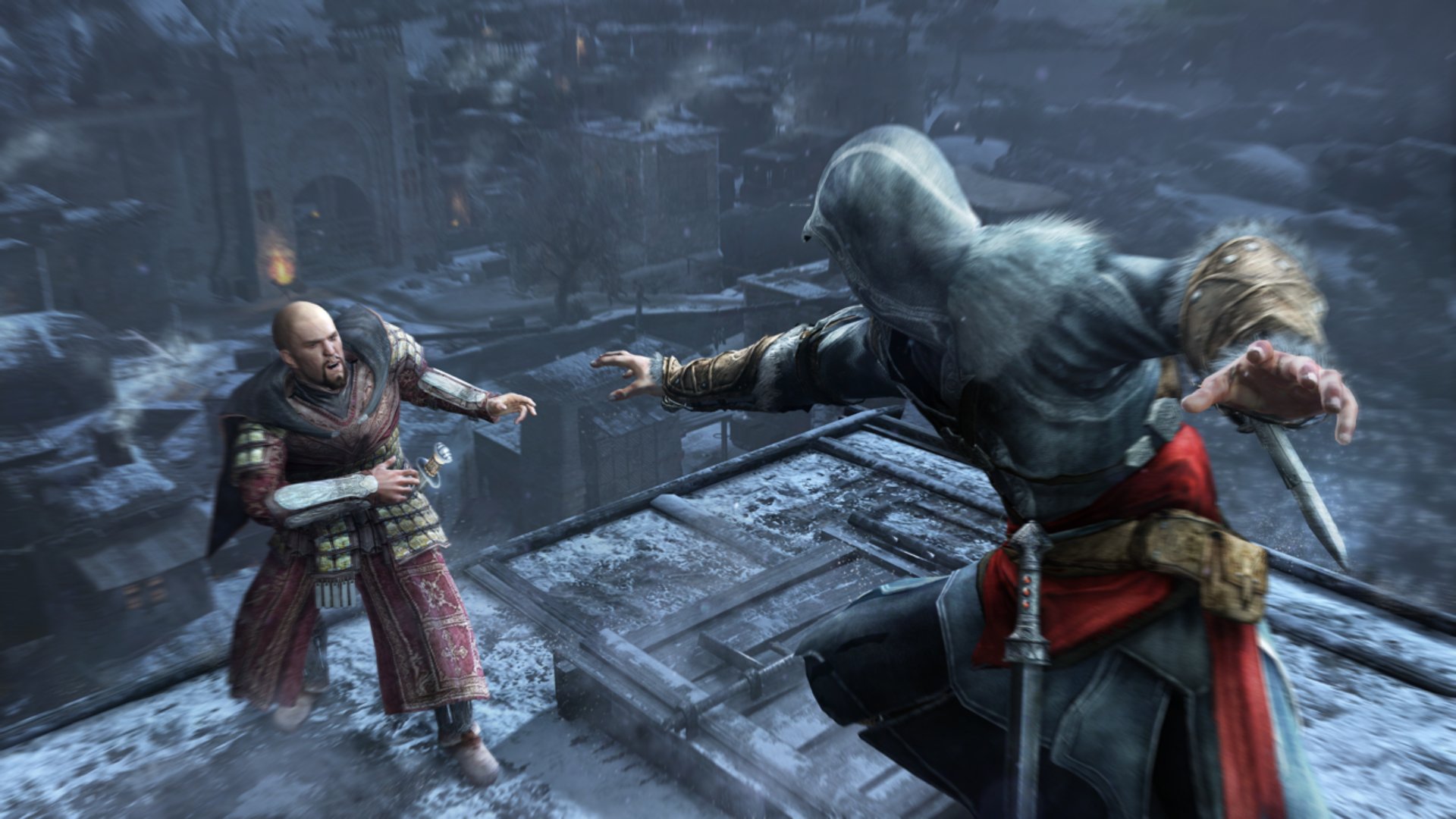
Original Syn
The Syndicate interpretation is, in contrast to most other takes on the tune, a decidedly minimalist composition – mainly featuring a solo fiddle and a haunting vocal from Victoria Atkin (the voice of Evie Frye in the game). Renamed to simply Family, it takes on a new dimension within the context of Syndicate, which uniquely features dual protagonists that the player can switch between on a whim: twin siblings Jacob and Evie. To create such a beautifully understated piece, when the temptation exists to go bombastic as others have done, seems like a bold creative decision. But for Wintory, it was a natural place to end up.
“I can’t say I had some specific notion beyond finding a way to simply interweave it with the aesthetic in the rest of Syndicate,” he says. “My instincts guided me, and it seemed to tumble out pretty effortlessly. The inclusion of Victoria herself was a real icing on the cake, though, orchestrated by a mutual friend who connected us midway through the project. Ubisoft encouraged me to find an approach that made this game a bit different from the rest, and that was a real joy.”
It’s like Kyd says: the potential ways to interpret Ezio’s Family are infinite. Some are understated, most have a touch of melancholy. Others are full-blown anthems, as is the case with Assassin’s Creed Odyssey’s take on the theme. It retains the evocative quality of the original piece, but becomes a super-charged spectacle with powerful synth pads and Jack White basslines. It’s the kind of track that sounds inimitably like the people recording it are having a lot of fun. But the prospect of nailing a fan-favorite tune was daunting for composing duo The Flight.

“It was a lot of fun, yes,” they say. “A lot of responsibility too – everyone who has composed an AC game has done a version, and there are already a lot of great versions out there. We started with our key Ancient Greek instruments, and jammed around the theme, band-style, trying to also incorporate elements of our own Odyssey theme in there too. The melody duties are shared between our singer Emma and Ren on the Rebec, a primitive bowed instrument that is very hard to play and tune.
“We always wanted to make a kind of ‘wedge’ arrangement,” they go on. “Starting small and intimate, and ending up big and rocky, reflecting the contrast that the game has – from a solo trek through beautiful countryside, to being in the middle of a huge battle between two armies.”
The experiential aspects of the game are often a bigger inspiration than the time period or setting, it seems. Particularly since the games often go to places where the musical stylings have been sadly lost to time. As Schachner did with Origins, The Flight had to search off the beaten path for inspiration when it came to soundtracking Classical Greece (and no, they didn’t base any of it on Xena: Warrior Princess, I asked).
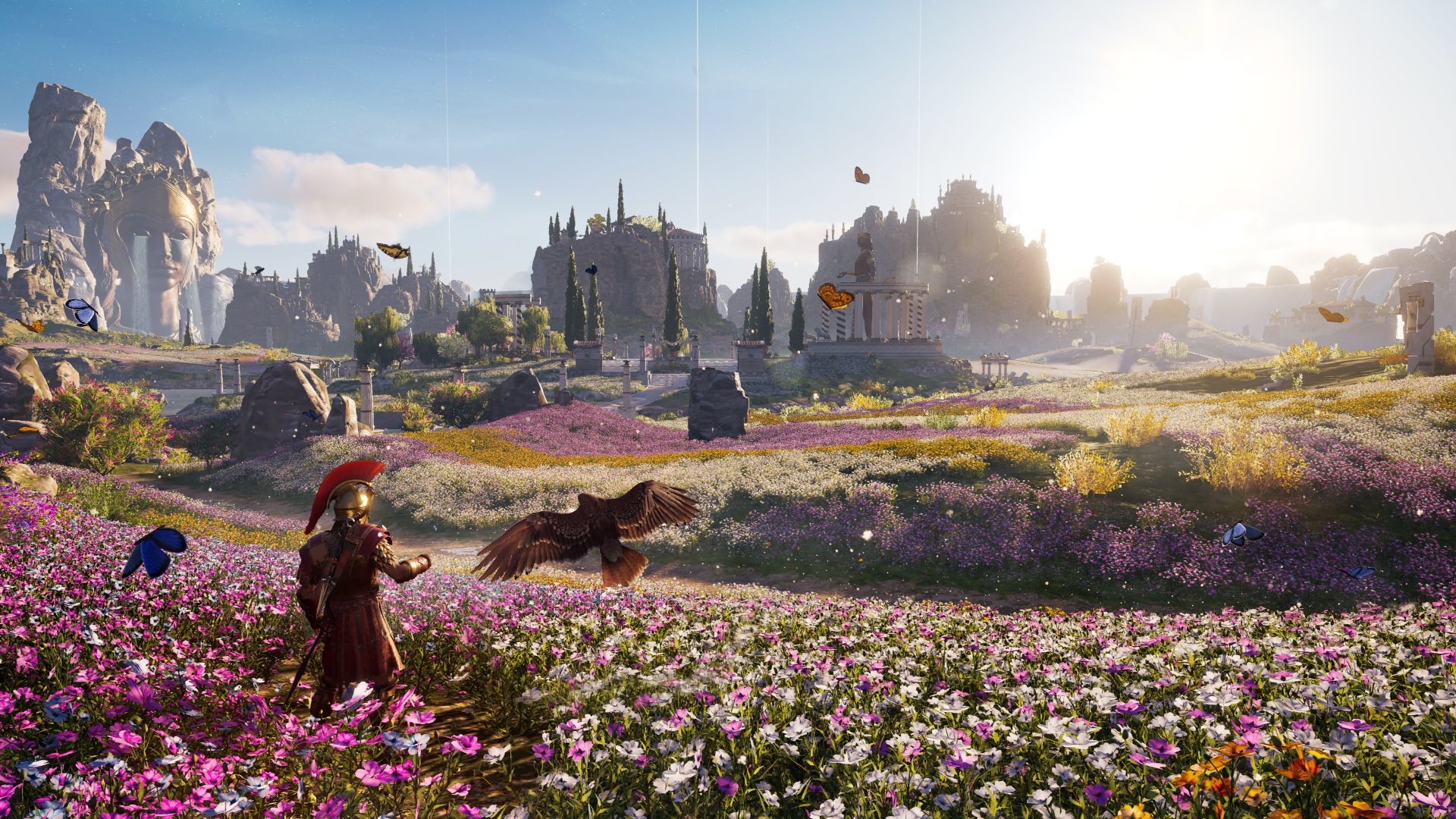
“There are some groups in Greece that specialize in the recreation of what historians think the music of the time would have sounded like, using instruments based on what evidence survives through art and literature,” they say. “We started by listening to them, and sourced instruments from folk shops as close as we could get to what they were using – dulcimers, lyras, pipes, percussion. We sampled these instruments as well as playing them in the usual way, making new, polyphonic different-sounding versions, and added in some more modern influences; after all, AC is a science fiction adventure at heart.”
Ultimately, The Flight were never striving for 100% historical authenticity. “The diegetic music within the game does that,” they say. “We were going for a ‘heart’ that respects and reflects all that the ancient Greek world has given us musically.”
For Wintory, recreating the much more easily researchable sound of Victorian England for Syndicate wasn’t actually much of a concern. “The main goal was capturing the movement and skill of the assassins themselves,” he explains. “They are nimble, agile, deadly and a lean-and-mean chamber score seemed more fitting than a lumbering orchestral one. From there we tapped into the idea of a sort of ‘death waltz’ to characterize the combat music and it all just clicked into place.”
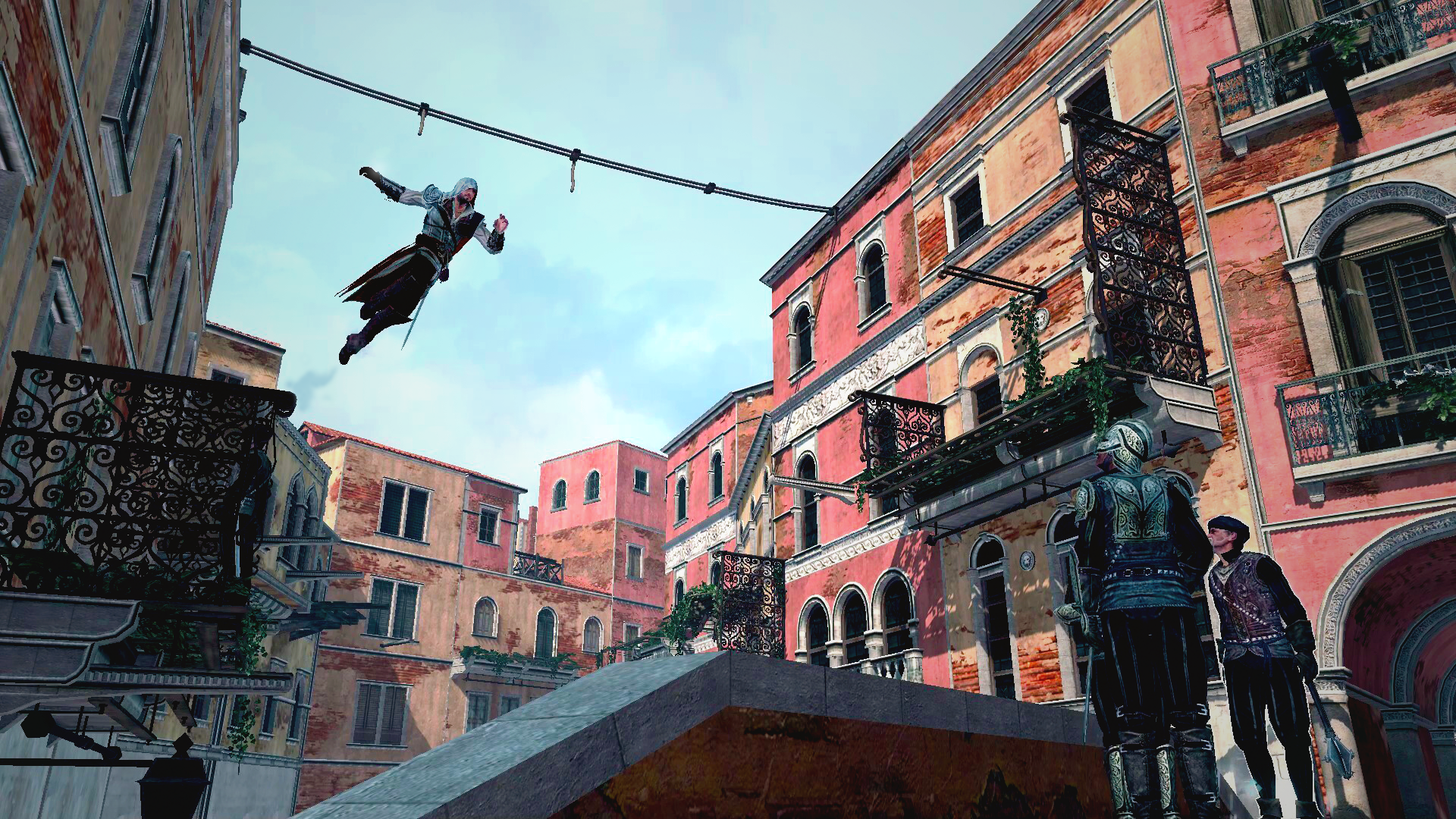
Good impression
Jesper Kyd returned to the series after a long absence with 2020’s Valhalla, a game much concerned with the metaphysical, set ostensibly in Viking Britain but essentially depicting a clash of ancient Nordic gods, and it’s this aspect that the score strives to evoke.
“I wanted to return and write a really impressionistic score,” he says. “Something that was inspired by the feeling of Norse mythology and the deeply spiritual life of Vikings. My approach was that everything needed to be based on live performances and then filtered as much as needed to get the sound of the Animus permeating in the tracks.
“I stayed away from adding electronic sounds and played all the instruments myself,” he adds. “I acquired a large collection of ancient instruments and started playing.”
Of course, a return to Assassin’s Creed for Kyd means that the established expectation for reinterpreting his signature work also applies to him. And despite the sheer breadth of creativity found in the versions of Ezio’s Family that have been produced since his seminal original, he found plenty of space to innovate.
“I am a huge Wardruna fan and so to have Einar Selvik sing on Ezio’s Family was something I really wanted to have happen,” he says. “I knew I wanted to switch the female vocals to male and of all the versions out there, no male vocal version existed.
“I also wanted to have a place in this Ezio’s Family reinterpretation that sounded like we were ascending to Asgard with the Nordic gods and so there’s a moment where everything lifts and we get transported to another realm.”
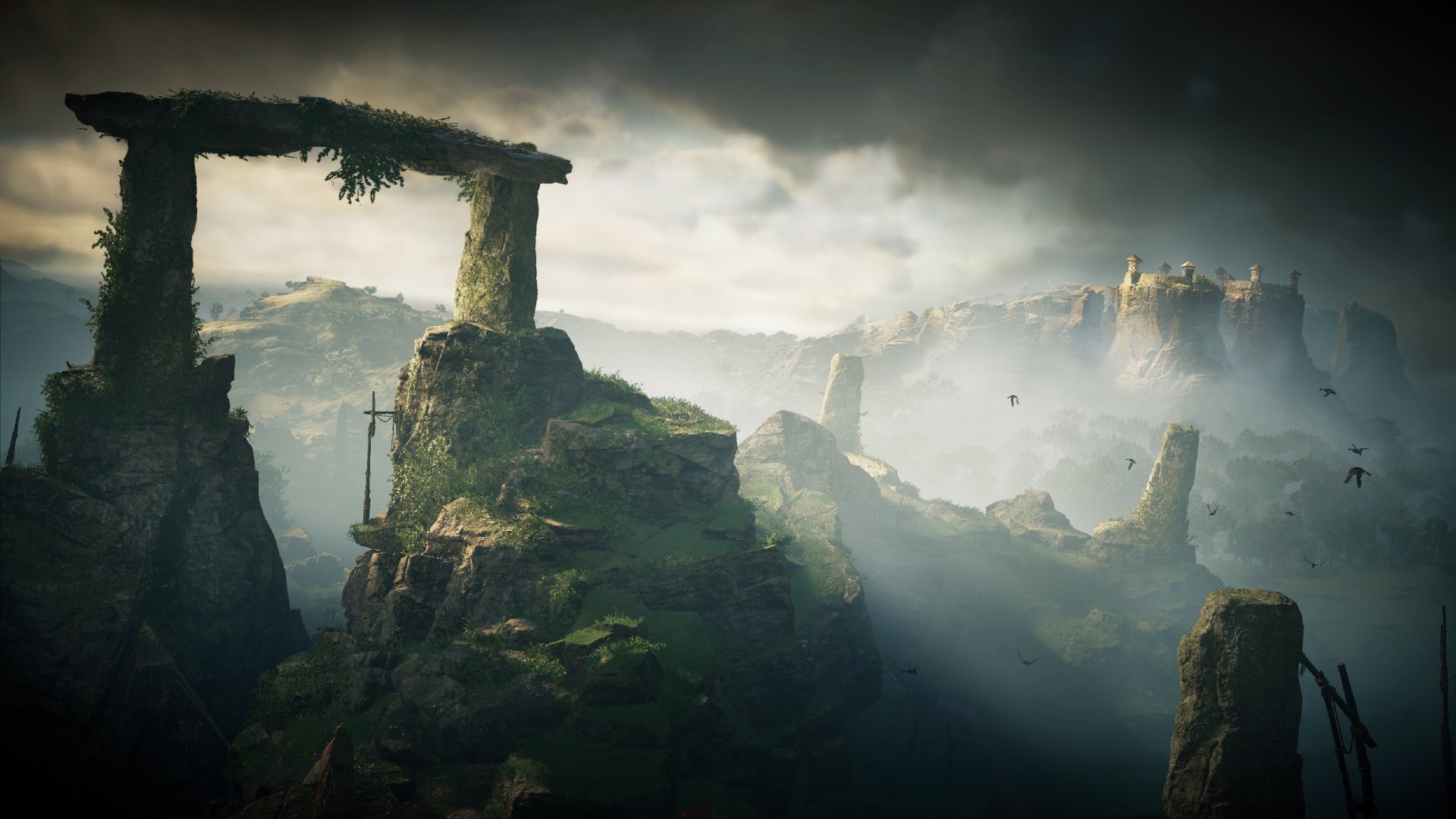
In a sense, the track itself has been on a great journey, through centuries of human history and across several continents
Kyd sang all the parts himself, and sent them to Selvik as a guide. “The vocals he sent back were sung with such emotion and rawness, it was the perfect fit and really captured the Nordic spiritual feel I was hoping for,” Kyd says. “He also sent me back ancient poems spoken in old Norse. There’s a real sense of being on a journey in this track.”
Animus instinct
In a sense, the track itself has been on a great journey, through centuries of human history and across several continents. This simple melody is a testament to accidental genius: a song composed off-brief, simply because Kyd felt moved to do so by a particular story beat, would go on quite unexpectedly to become the definitive theme of a vast and ever-expanding body of work.
“When I was first shown concept art and game sketches, my first thought was that this game was impossible to make,” Kyd says. “No one had ever attempted to make anything like this before. With such ambition, I knew that if they pulled this off it would be a very special game and it would be launching a whole new style of games.”
He wasn’t wrong. The influence that Assassin’s Creed has had on the form of AAA open-world action games is undeniable, with everything from Marvel's Spider-Man to Mad Max pilfering generously from its core design. Yet what makes the series special to fans isn’t its importance, but its humanity. Ezio’s Family is fundamentally about what the games are about: finding meaning in all the chaos.
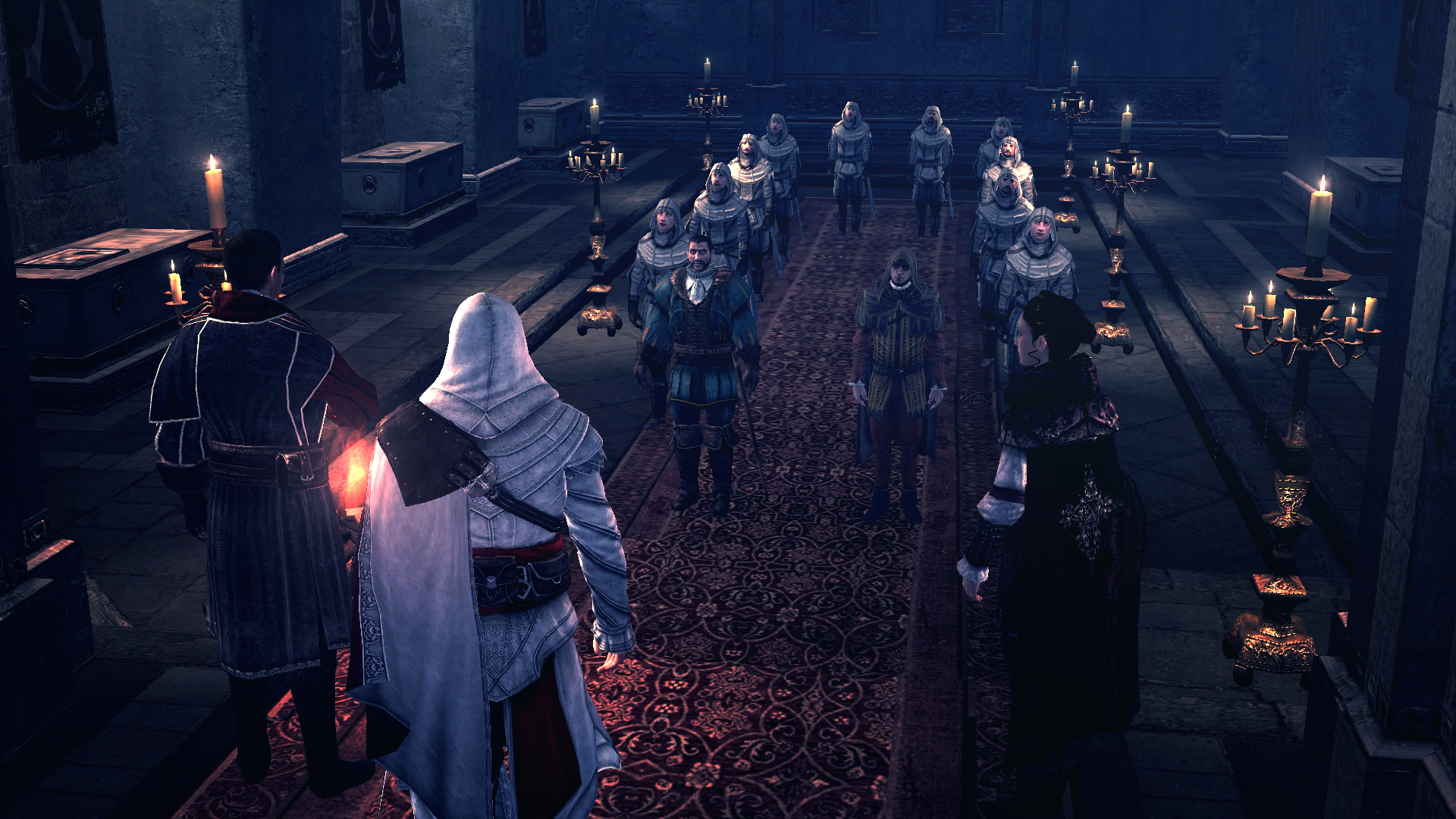
“At its core, it’s a theme about loss, loss of family very close to you, in Ezio’s case his father and brothers,” Kyd says. “It’s also a theme that speaks to the sacrifice you have to make when becoming an assassin in the Brotherhood. The loss of family would not have happened had Ezio’s father not been an assassin.
“And finally, it’s a theme of rebirth and transcendence. Finding your true purpose and becoming something that’s more meaningful, because you have found a new and deeper purpose in life. Ezio has to grow up after the tragic events he is subjected to. So, it’s a very personal track to me and one that I can still listen to and get something from emotionally.” Us too, Jesper. Us too.
Laced Records' Assassin's Creed - Leap Into History vinyl collection is due to start shipping in January 2023.
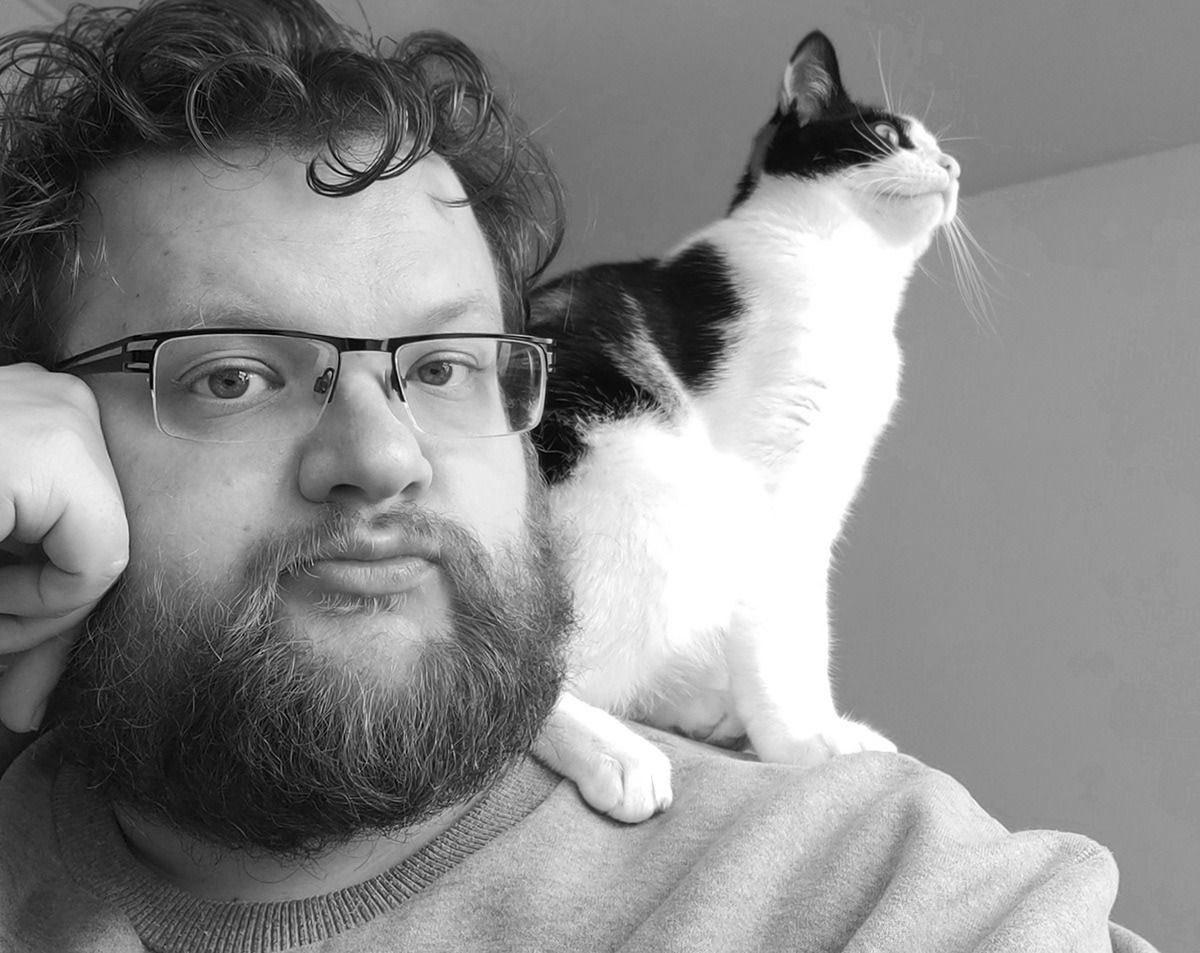
Jim Trinca is a Welsh-Italian Scottish person from Bristol. During his decade-long career in games he has been a prolific podcaster and YouTuber, has produced countless game trailers and dev diaries for the likes of Capcom and Irregular Corp, and won three Games Media Awards for shouting at Chris Bratt while wearing a vest. In his spare time he tends to a cat.